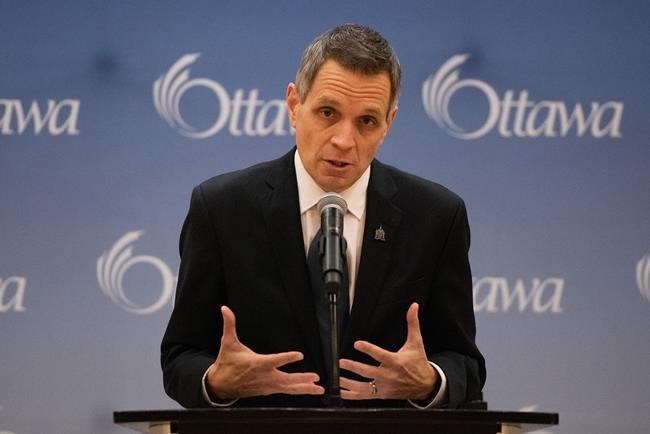Ottawa city council has voted to freeze transit fares for the upcoming year in an effort to restore the public's trust after the light rail transit system debacle, and to encourage more people to use public transit as they return to in-person work.
The city's mayor said Wednesday that he is also hoping that keeping adult and youth fares at $3.75 will help with affordability. The freeze will apply to all transit users across the board, instead of being targeted toward specific groups.
Mark Sutcliffe promised a halt on fare hikes during the municipal election campaign in which he became mayor this fall.
That was before the release of a final report into the failure of the city's LRT project, which highlighted issues with senior staff and elected officials withholding information from councillors as the project ran over budget and behind deadlines.
Coun. Marty Carr supported the move during Wednesday's meeting.
"In order to incentivize those federal public servants who are returning to work to get back on transit, I think we have to keep the fares low this year," Carr said.
OC Transpo recently reported that ridership is still 60 per cent lower than it was pre-pandemic. In September, 5.7 million people took the bus or train compared to the 9.1 million riders in September of 2019.
The freeze could result in a $5-million dollar loss of revenue for the city, and some councillors are raising concerns about what that will mean for other projects going forward.
Riley Brockington argued the move will not be not beneficial, given the already low ridership and the revenue needed for infrastructure projects that have been put on the back burner.
"I'm very concerned that taking much-needed revenue from the transit package will have negative impacts," said Brockington.
He said if affordability is the main concern, the city should target those who are disproportionately affected instead of implementing a transit fare freeze across the board.
This report by The Canadian Press was first published Dec. 14, 2022.
—�Ĕ�Ĕ
This story was produced with the financial assistance of the Meta and Canadian Press News Fellowship.
Cindy Tran, The Canadian Press



